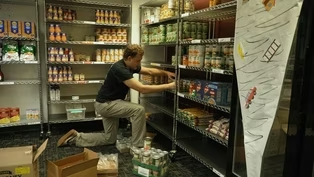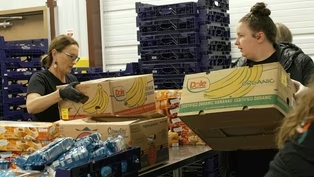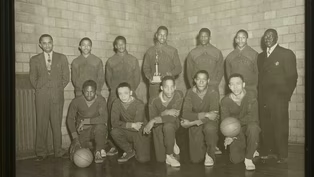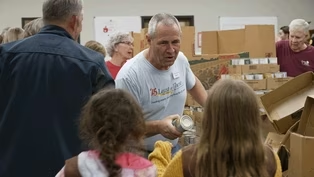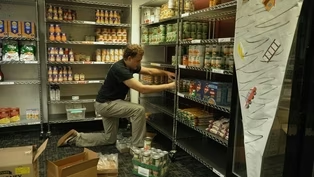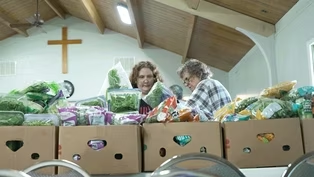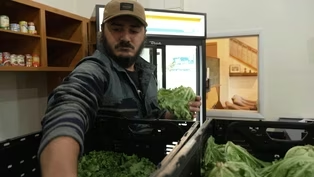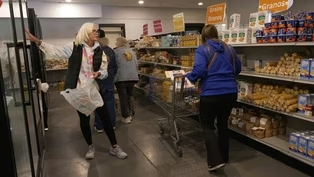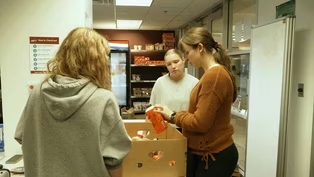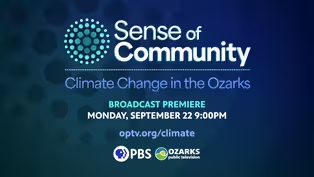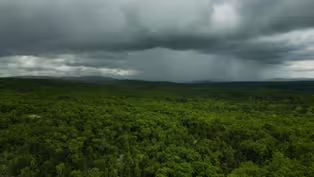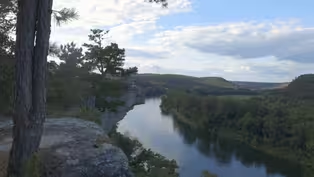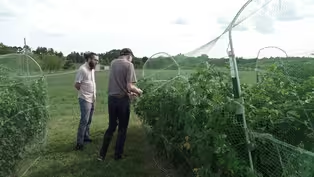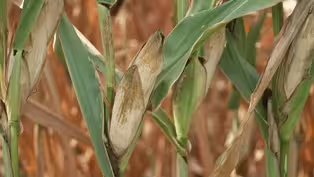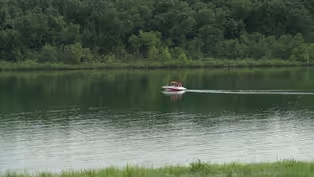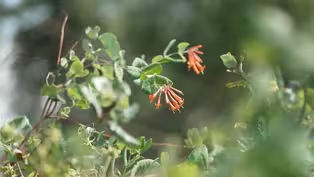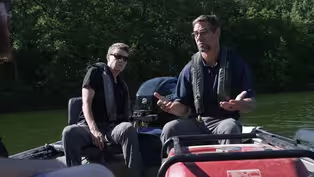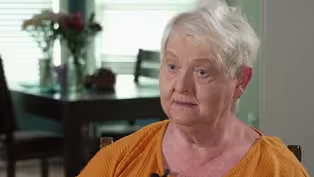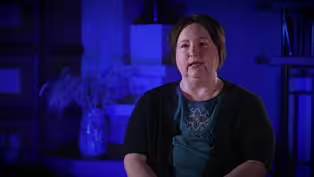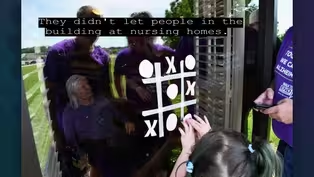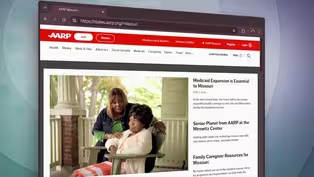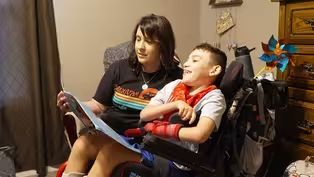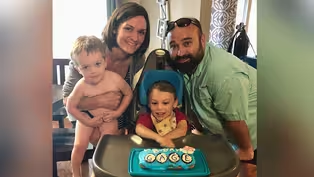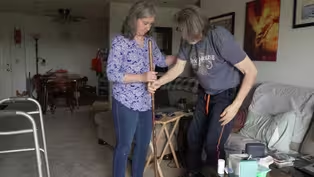Sense of Community
Growing Solutions
Clip | 3m 10sVideo has Closed Captions
Ozarks researchers work diligently to provide solutions to agricultural challenges
Dr. Jesse Carroll and Jacquelyn Wray at the Missouri State University Fruit Experimentation Station are researching solutions to the growing problem of frost and heat on agricultural production
Problems playing video? | Closed Captioning Feedback
Problems playing video? | Closed Captioning Feedback
Sense of Community is a local public television program presented by OPT
Sense of Community
Growing Solutions
Clip | 3m 10sVideo has Closed Captions
Dr. Jesse Carroll and Jacquelyn Wray at the Missouri State University Fruit Experimentation Station are researching solutions to the growing problem of frost and heat on agricultural production
Problems playing video? | Closed Captioning Feedback
How to Watch Sense of Community
Sense of Community is available to stream on pbs.org and the free PBS App, available on iPhone, Apple TV, Android TV, Android smartphones, Amazon Fire TV, Amazon Fire Tablet, Roku, Samsung Smart TV, and Vizio.
[AUDIO LOGO] JESSE CARROLL: The Missouri State Fruit Experiment Station was actually established in 1900 as an act of legislature by the state.
It was gifted to MSU.
And then since then, we've used it to do research in small fruits.
So that includes grapes, tree fruits, blackberries, blueberries, all of the above.
It kind of serves as our home base for horticulture production.
Our research directly affects growers, and we go to conferences and we deliver our results.
And they're able to take what we have here and make decisions in their own vineyards and wineries.
We have research on the disease side.
We're studying the mechanisms at a molecular level.
We have genetics and breeding.
We're looking for desistance and susceptibility genes, cold hardiness traits that we can then turn into breeding cultivars that are more hardy for this.
The disease pressure is higher tire because the conditions are right for it.
It's hotter, it's wetter, it's-- More humid.
--more humid, yeah.
JESSE CARROLL: So there's a number of different ways that you can try to prevent or mitigate the damage that we see from heat stress, cold damage, water stress.
All of those things, though, require more inputs.
You can use evaporative cooling.
So sprinklers run every 15 minutes throughout the day above a certain threshold temperature.
And that cools the fruit and cools the plant.
But that requires more water input.
So there are a number of different management things that we can do to mitigate these issues.
But again, all of those will need to be researched, and we have to assess their effect as well as the cost on both our resources-- our money and our time-- and how all of that plays into what the future is going to look like in our production.
A research setting is vastly different than oftentimes what growers can do.
So part of what my research focuses on is the practicality of that.
Like, yes, we can do deficit irrigation, or yes, we can do evaporative cooling.
But how easy and how cost effective is it for the growers to implement those, especially here in the Midwest?
So while we know that those are strategies we can use to mitigate these climate change effects, we're seeing they're not feasible for growers to implement.
And so part of our research then assesses, OK, how can we make this a thing that growers can do without costing more or meeting them where they're at?
We're definitely not climate scientists or climatologists.
That's true.
But we do see the impact of it real time out here in the field, and we are facing challenge after challenge every growing season.
JACQUELYN WRAY: Funding for research like this is extremely important because how will they know how to adapt if we're not doing the research.
It's not going to get done, and we're not going to be adaptable.
Preview | 30s | Ozarks nonprofits strive to make sure no one goes hungry (30s)
Video has Closed Captions
Clip | 2m 15s | Ozarks Food Harvest partners with another local nonprofit to provide fresh produce for those in need (2m 15s)
Video has Closed Captions
Clip | 2m 30s | Joplin area residents come together each week to help a local nonprofit feed their community (2m 30s)
Video has Closed Captions
Clip | 2m 10s | A food pantry in Ozark provides, food, education and resources to those in need (2m 10s)
Video has Closed Captions
Clip | 2m 30s | Families in the Ozarks face difficult choices between buying food and paying rent (2m 30s)
Video has Closed Captions
Clip | 2m | Volunteers make sure unused crops get to those facing hunger (2m)
Video has Closed Captions
Clip | 2m | Community fridges across Springfield are helping to feed those who would otherwise go hungry (2m)
Video has Closed Captions
Clip | 2m 20s | Christian Action Ministries works to fill a need in Stone and Taney Counties (2m 20s)
Video has Closed Captions
Clip | 2m 20s | The Bear Pantry challenges conceptions of what food insecurity looks like (2m 20s)
Video has Closed Captions
Clip | 20s | Climate Change in the Ozarks - Broadcast Premiere Sept, 22 at 9pm (20s)
Video has Closed Captions
Clip | 5m 30s | Experts weigh in on the impacts of climate change on the Ozarks and suggest possible solutions. (5m 30s)
Video has Closed Captions
Clip | 5m 45s | Climate change creates greater rainfall in the Ozarks, negatively impacting our rivers. (5m 45s)
Video has Closed Captions
Clip | 3m 10s | Ozarks researchers work diligently to provide solutions to agricultural challenges (3m 10s)
Video has Closed Captions
Clip | 3m 48s | A local farmer describes the challenges of growing crops in a changing Ozarks climate. (3m 48s)
Video has Closed Captions
Clip | 3m 50s | As a growing population in the Ozarks consumes more water, the need for new sources arises. (3m 50s)
Video has Closed Captions
Clip | 3m 2s | Native plants serve as a unique solution to the obstacles faced by Ozarks wildlife and habitat. (3m 2s)
Video has Closed Captions
Clip | 3m 51s | Floating wetlands present a unique solution to the problem of algal blooms in the Ozarks. (3m 51s)
Video has Closed Captions
Clip | 1m 45s | Young caregivers, often driven by gender norms, face challenges but grow personally (1m 45s)
Awareness Rising: The Future of Caregiving
Video has Closed Captions
Clip | 1m 58s | Experts stress caregiving awareness; hospice care users share how it deepened their bond (1m 58s)
Video has Closed Captions
Clip | 2m | Caregivers reflect on emotional toll, stress rest, reflection, and daily joy to reframe caregiving (2m)
Video has Closed Captions
Clip | 1m 58s | COVID isolation impacted personal connection's role in health and happiness (1m 58s)
Tackling Missouri’s Dementia Crisis
Video has Closed Captions
Clip | 1m 50s | 130,000 Missourians have dementia; 250,000 unpaid caregivers face isolation, service gaps. (1m 50s)
Redefining Care: Finding Support and Recognition
Video has Closed Captions
Clip | 1m 50s | Caring for a disabled child brings emotional, financial hurdles; need for better access to support (1m 50s)
Video has Closed Captions
Clip | 1m 58s | Caregivers share emotional struggles while experts suggest therapy, and peer support for stress. (1m 58s)
Video has Closed Captions
Clip | 1m 50s | Caregivers often experience depression, fatigue, and medical crises, and emotional strain (1m 50s)
Providing Support for PBS.org
Learn Moreabout PBS online sponsorship
- News and Public Affairs

Top journalists deliver compelling original analysis of the hour's headlines.

- News and Public Affairs

FRONTLINE is investigative journalism that questions, explains and changes our world.












Support for PBS provided by:
Sense of Community is a local public television program presented by OPT
